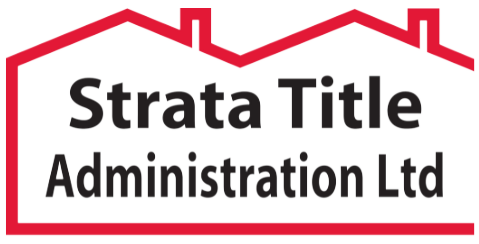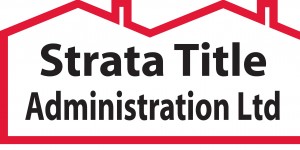What is a Body Corporate?
What Is A Body Corporate?
If you own property under a unit title, then you’re automatically part of a body corporate (also referred to as an owners corporation). Usually set up by the developer who originally built the complex, it’s a legal entity of its own and makes you and your fellow property owners jointly responsible for things such as paying levies and caring for common property.
Keeping a Body Corporate running smoothly and ensuring all owners have a voice is a complex and demanding process, so it’s common to get help from a professional Body Corporate management company like Strata. By appointing us, you can relax knowing your finances will be looked after, that an independent third party will be available to assist in addressing disputes and that you’ll be meeting your obligations under the Unit Titles Act 2010 and Regulations 2011.
A statement of the receipts and payments made during the Body Corporate’s financial year is given to you with the agenda for the Annual General Meeting. Also attached to the statement will be an audit certificate, which shows that an independent chartered accountant has audited the account – a process that happens every two months.
How are the finances managed?
The financial accounts for your Body Corporate are a record of all receipts (levies received from owners) and payments made to run your Body Corporate. The money is held in an audited trust account, and invoices to support the transactions to and from the account are held by Strata in your Body Corporate’s account file.
A statement of the receipts and payments made during the Body Corporate’s financial year is given to you with the agenda for the Annual General Meeting. Also attached to the statement will be an audit certificate, which shows that an independent chartered accountant has audited the account – a process that happens every two months.
How Does My Body Corporate Pay Tax?
Strata will make sure your Body Corporate complies with the requirements of the Goods and Services Tax (GST) Act and keep all the records required by the Inland Revenue Department.
The GST Act requires your Body Corporate to file GST returns every six months if the funds passing through your trust account are between $60,000 and $499,999 annually, and every two months if the amount is $500,000 or more in a year.
A Body Corporate that is registered for GST also needs to file an annual income tax return, and pay tax if it has any taxable income (such as interest). Strata will arrange for a chartered accountant to file income tax returns for your Body Corporate.
How Does Strata Reduce Auditing Costs?
Under the Unit Titles Act 2010, the annual accounts for a Body Corporate must be audited independently or submitted to an accountant for review, unless the Body Corporate resolves by special resolution not to do so for a particular year.
Auditing can be expensive. In fact, it’s often financially unrealistic for a Body Corporate to employ an independent auditor unless it has substantial cash reserves. To help you save money while keeping your account secure, Strata offers a more economical alternative to an independent audit of the accounts.
At each Annual General Meeting, proprietors will be asked to consider this special resolution:
“That section 132(2) of the Act does not apply to the Body Corporate for the forthcoming year but that all transactions of the Body Corporate are to continue to be made through the trust account of the Body Corporate Manager which is subject to audit, and that any interest earned be applied towards the cost of auditing the trust account, which is audited every two months.”
By passing this resolution, the Body Corporate avoids the cost of employing its own independent auditor. Strata’s trust account is audited every two months and we will send each owner an up-to-date audit certificate with the Body Corporate’s annual accounts.
How Much Will My Levy Be?
Your levy is your monetary contribution to the maintenance and management of the Body Corporate and its common areas. You need to pay a levy regardless of whether your Body Corporate uses a professional management company like Strata.
At the Annual General Meeting the Body Corporate will set a budget to cover yearly costs such as insurance, building valuations, maintenance contracts, administration fees, etc. There will also typically be other Body Corporate outgoings such as contribution to an Optional Contingency Fund or a fund to cover long term maintenance.
Owners at either the Annual General Meeting or an Extraordinary General Meeting will discuss and agree upon the amount and when the Body Corporate’s levies are due and decide on a ‘user pays’ principle for debt collecting. Normally, a Body Corporate will resolve that if a levy is not paid on time, the property owner in question will need to pay a 10% surcharge, interest, debt-collecting costs, and any solicitor or client costs.
Levies are essential for a well-run and maintained Body Corporate. You and the other owners in your Body Corporate must comply with Section 80 of the Unit Titles Act 2010. This requires you to keep the common property in a state of good repair; establish and maintain adequate funds; and keep levy contributions from owners in proportion to the ownership Interest of their respective units. A levy invoice for your contribution to the funds of the Body Corporate will be sent to you with the minutes of the meeting.
What Does The Building Manager Do?
The majority of many large residential apartment complexes and townhouse developments have an onsite building manager. The role of the building manager varies depending on the type and complexity of the Body Corporate.
Each building manager is an independent contractor to the Body Corporate, with an employment contract administered by the Body Corporate via the Chairperson,the Committee and Strata.
An onsite building manager is required to maintain a register of residents in the building or complex, to co-ordinate residents moving in and out of the units (e.g. provide lift protection guards during the movement of bulky goods or furniture) and to promote a harmonious atmosphere in the building or complex.
The building manager provides a monthly written report on the operation of the building detailing visits by police or emergency services, lists problems with, or failures of, the building’s services, and records callouts of any service contractor (such as lift maintenance or air conditioning contractors). Depending on the size of the Body Corporate, the building manager may be responsible for cleaning common facilities.
Where a Body Corporate has an onsite building manager, that person is responsible for:
- Onsite liaison between residents
- Control of contractors working for the Body Corporate
- Supervising access by emergency services to any unit
The building manager will have a copy of the “as-built” plans of services to the building, and will report to the Body Corporate’s consulting engineer when carrying out Compliance Schedule inspections under the Building Act that don’t require the services of an independent qualified person. The building manager also ensures that everyone adheres to fire safety regulations and requirements of the Building Act.
The contract between the building manager and the Body Corporate usually requires the building manager to:
- Be an independent contractor
- Be a ‘legal person’ exempt from the provisions of the Employment Relations Act 2000
- Be registered for the purposes of the Goods and Services Tax Act 1985
- Pay the Accident Compensation Corporation premium
The building manager must meet the requirements of the Privacy Act 1993. This includes any personal information obtained about a property owner or resident. When the building manager’s contract expires, he or she must return all records and information to the Body Corporate.
Usually the amount paid to an onsite building manager includes the cost of renting the building manager’s premises. Often an investor owns the office, carpark and flat occupied by the building manager, and the Body Corporate is typically required to pay the building manager a sum covering the rent payable to the investor plus the ‘owner’s outgoings’ (Body Corporate levies and rates).
How do I access my Body Corporate's web portal?
With Strata, you can access all your important property information at any time by logging in to our secure online portal.
You can log in here to see everything from scheduled meetings to financial data. You can also recover your username or password if you’ve forgotten them. If you’re still having trouble logging in, please call us on 0800 7 STRATA or 09 307 3721.

